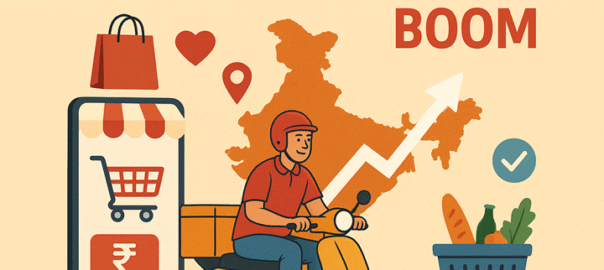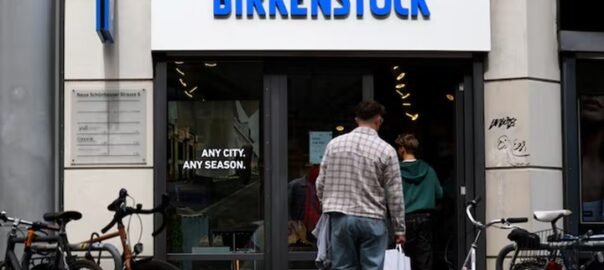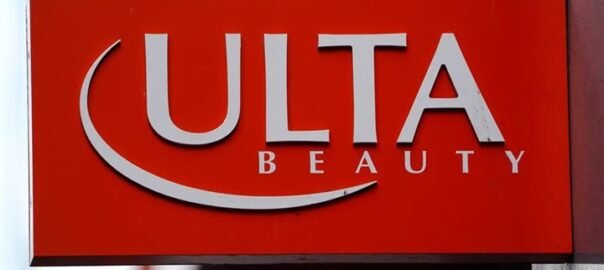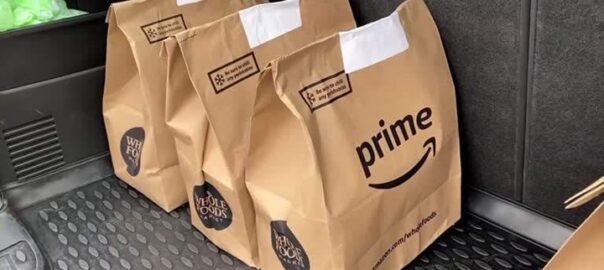Quick Commerce is a subcategory of e-commerce, that focusses on delivering goods to customers within a shorter time frame, typically within 30 minutes.
In India, Quick Commerce is growing at an unprecedented rate, fueled by the rise in digital adoption, a strong demand for convenience and instant gratification among urban consumers.
As reported by Statista, revenue in the quick commerce market is projected to reach US$5.38bn in 2025. Revenue is expected to show a Compound Annual Growth Rate (CAGR) of 15.54% between 2025 and 2030, resulting in a projected market volume of US$11.08 billion by 2030. The number of users in the Quick Commerce market is anticipated to reach 65.0 million by 2030, with user penetration expected to rise to 4.3%.
With such strong projected growth, it’s important to look into the companies leading the Quick Commerce revolution in India.
The leading Quick Commerce companies in India are: Blinkit, Zepto, Swiggy Instamart, , Big Basket’s BB Now, Flipkart Minutes, Amazon Fresh and Fresh To Home.
Blinkit is spearheading the quick commerce market in India, thanks to strategic backing from Zomato, its first-mover advantage, and a strong focus on operational efficiency. Rapid expansion of dark stores, emphasis on fast deliveries, and a growing urban customer base have further solidified its leading position.
However, despite Blinkit’s strong foothold, the Quick Commerce landscape in India is becoming increasingly competitive, with several players vying for market share in this fast-growing sector.
In India, the quick commerce market is highly competitive, with major players vying for market share. All though a few large companies dominate the sector, the market remains fragmented, which opens doors to small companies to come in and specialise.
- Intense Competition- Due to the competitive nature of the markets, companies are offering aggressive discounts, even at the expense of profit margins to drive customer acquisition and retention.
- Dominant Players- Blinkit, Swiggy Instamart and Zepto are among the key quick commerce players, together holding more than 80% of the total market share.
- Fragmented Market- Despite few big names dominating the market, it remains fragmented leaving room for niche brands to enter, make a name for themselves, and serve specific customer needs.
- Price Wars- companies often use aggressive discount strategies to secure market share, which comes at the cost of profitability.
- Consolidation- while mergers and acquisitions continue to take place, it reflects the industries focus on consolidation and growth.
- Innovation- To gain a competitive edge, companies are focussing on innovation across technology, logistics and customer experience.
- Challenges- The quick commerce sector grapples with several challenges including; high operational costs, logistical complexities, supply chain vulnerabilities, and increasing consumer expectations.
- Impact on Traditional Retail- With the rise of quick commerce, small retailers are facing the brunt as they are not able to compete with the speed and convenience offered by online platforms.
- Future Outlook- The market is projected to continue expanding, driven by growing demand in both urban and semi-urban areas, along with intensified competition due to the entry of new players.
According to Mordor Intelligence, in the Indian quick commerce market, the Grocery and Staples sector is leading the charts, and accounts for the largest market share. This is followed by Snacks and Beverages, and Personal Care and Beauty. Electronics and Accessories is gaining momentum, but still holds a small market share. The dominance of Grocery and Staples in the quick commerce market is driven by the high demand for instant delivery of essential items.
This growing demand for instant deliveries, throws light on the key advantages of quick commerce for the Indian consumers and businesses. From enhanced convenience to broader market access, quick commerce is reshaping the way people shop.
Quick Commerce in India offers numerous benefits to customers. It is reshaping the retail sector by offering instant deliveries, and convenience, with orders delivered within 10-30 minutes. This is useful for urgent and last- minute needs, eliminating the need to visit a store and saving customer’s time. Beyond fast deliveries, these platforms enhance customer experience, by offering real time tracking, product recommendations and effortless ordering through user friendly apps. Essential items like groceries, medicines and personal care items are easily available on quick commerce platforms, especially in densely populated areas.
The Quick Commerce sector has also created numerous job opportunities across areas like delivery, logistics, and warehousing, which in turn contributes to economic growth. It also allows direct to consumer [D2C] brands to expand their reach to a wider audience. Quick Commerce companies have the upper hand over online platforms, by providing instant gratification to its consumers. Additionally, quick commerce has driven innovation in fields such as AI-based demand forecasting, optimised delivery routing, and micro-warehousing solutions.
Despite the rapid growth and numerous advantages, the quick commerce sector in India is not without its challenges.
Quick Commerce relies on instant deliveries, but India’s traffic congestion poses a major challenge, often causing delays and impacting delivery times. To deliver goods on time, efficient route planning is crucial. However it requires advanced technology, which comes at a cost. Running dark stores in multiple locations, managing a large delivery workforce, and technological infrastructure, all adds to high operational costs.
Supply chain vulnerabilities in quick commerce poses a range of challenges that require strategic attention like, maintaining adequate stock levels to prevent stockout, as disruptions in the supply chain will lead to delays and customer dissatisfaction. Then comes regulatory hurdles which further complicates operations; for instance, companies must navigate complex labour laws to ensure delivery personnel are treated fairly, while also adhering with zoning regulations that may limit the placement of dark stores. On the other hand, environmental concerns are on the rise, as the growing number of delivery vehicles adds to the carbon footprint, and the industry produces substantial package waste, both of which pose significant sustainability issues. At the same time, consumer expectations rise and they demand not only speed and convenience but a wide variety of premium quality products delivered on time. To fulfil these expectations and to stay competitive, companies need to adopt technological innovations like AI and Automation, and real time tracking.
To Conclude, in India the quick commerce sector is growing at a fast pace, and is offering instant deliveries, convenience and accessibility. Despite the challenges like high operational costs, intense competition, the sector continues to thrive. With innovation, evolving consumer demand and increasing digital adoption, quick commerce is on track to become a pillar of India’s retail future.










